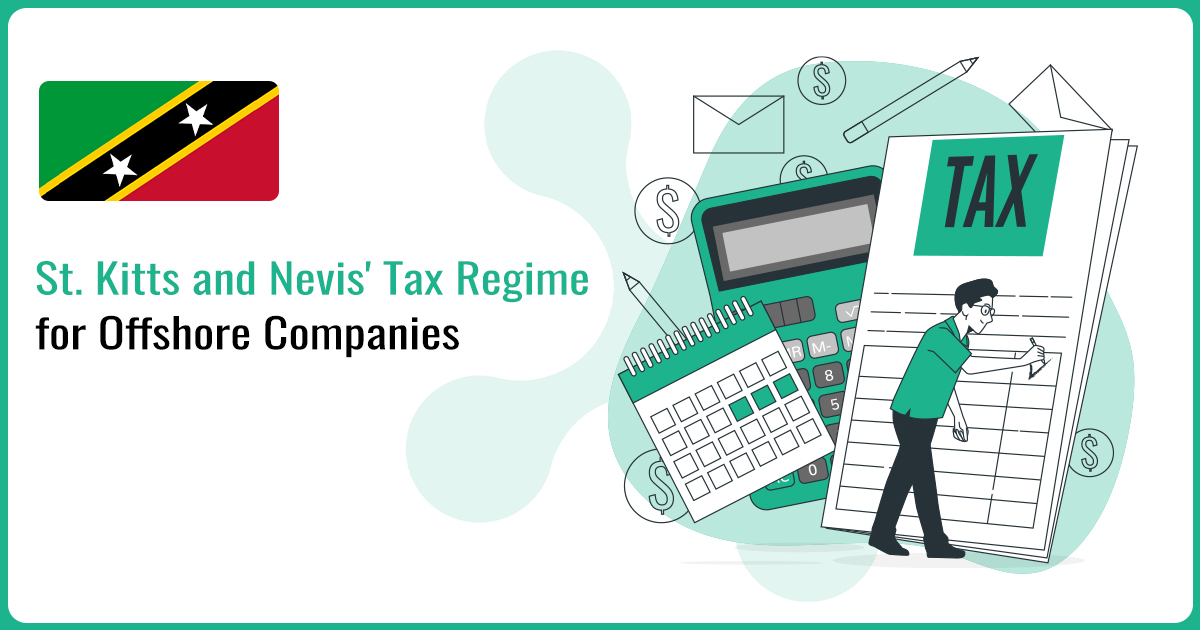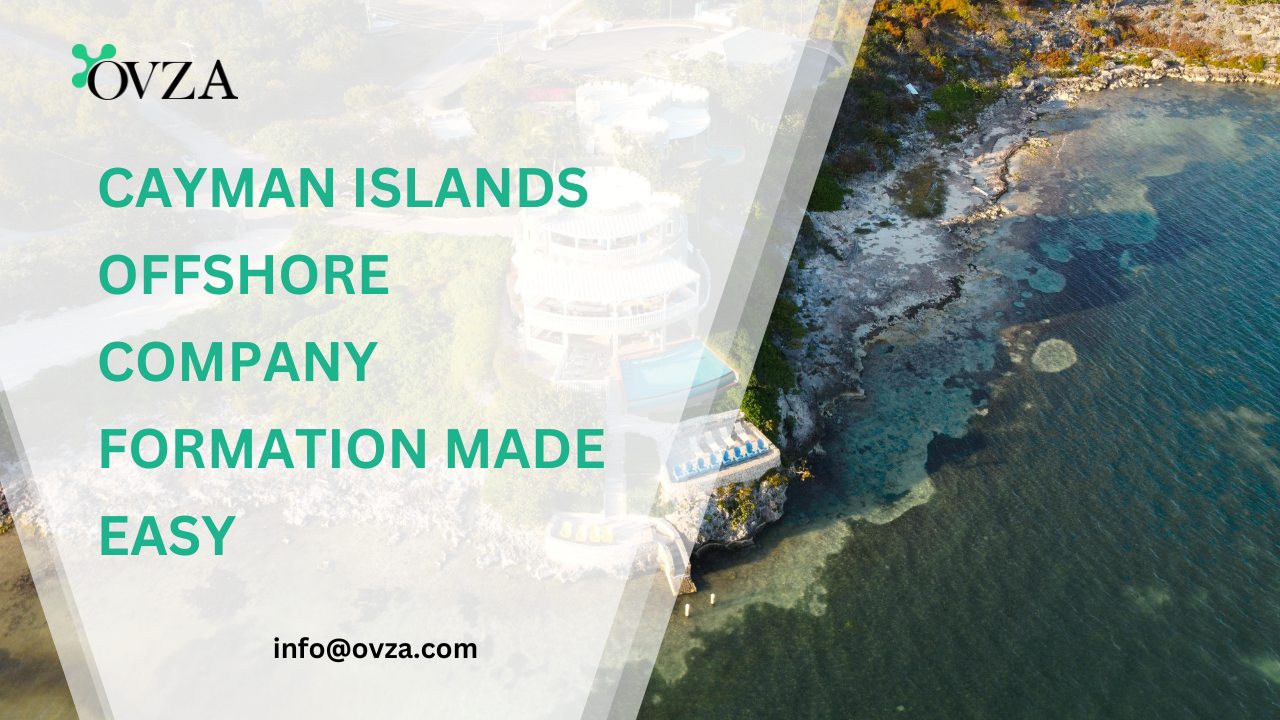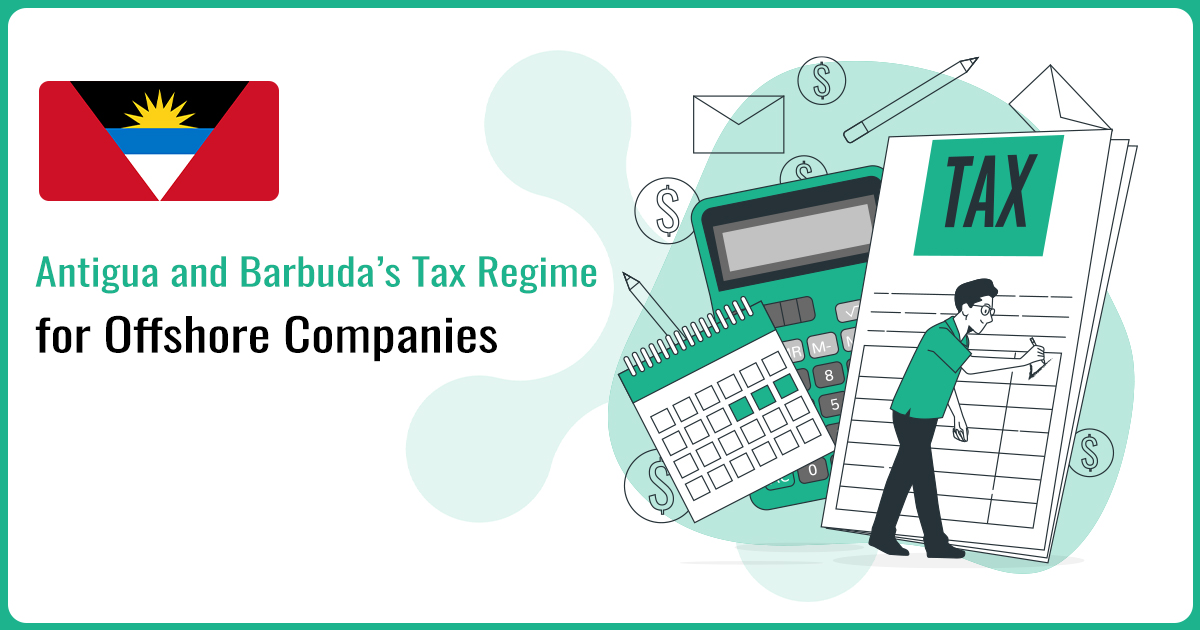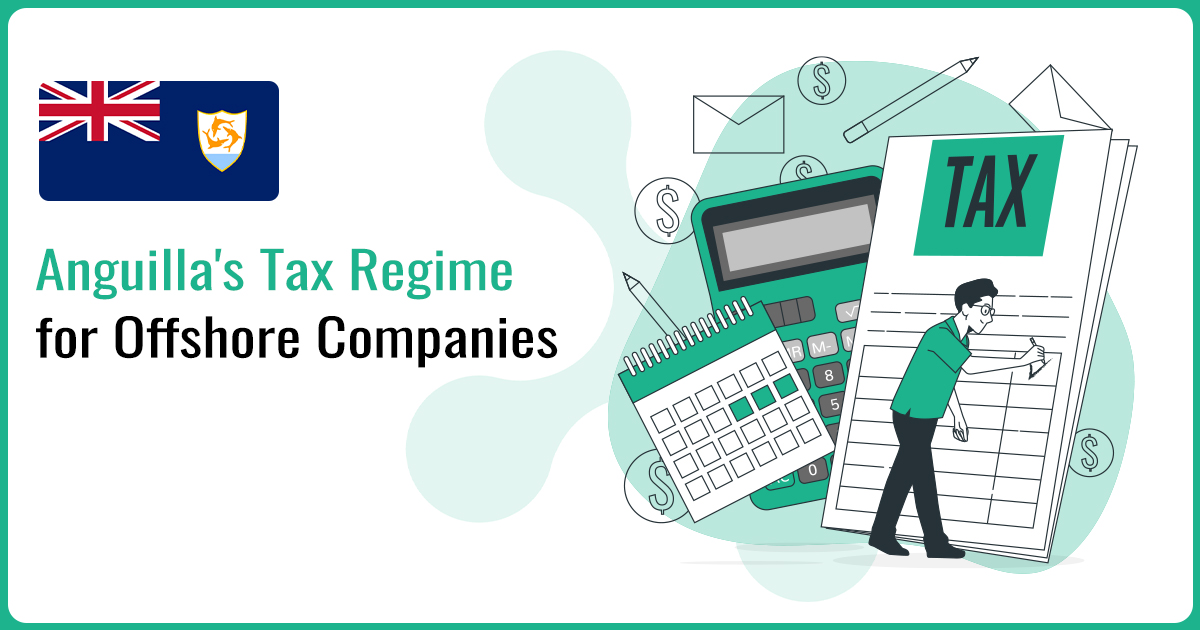St. Kitts and Nevis, a twin-island nation in the Caribbean, is a well-regarded jurisdiction for offshore company formation. Its favorable tax regime, supported by robust legal frameworks, makes it an attractive destination for international businesses seeking tax efficiency and privacy. This article outlines the key aspects of St. Kitts and Nevis’ tax regime for offshore companies, focusing on the relevant laws.
No Corporate Income Tax: The Nevis Business Corporation Ordinance (NBCO), 1984
Under The Nevis Business Corporation Ordinance (NBCO), 1984, offshore companies incorporated in Nevis as International Business Companies (IBCs) are exempt from corporate income tax on income earned outside of St. Kitts and Nevis. This law allows businesses to operate globally without paying taxes on their profits to the Nevis government, making it an attractive jurisdiction for companies engaged in international trade, investment, and services.
No Withholding Tax: The NBCO and The Income Tax Act, 1966
St. Kitts and Nevis do not impose withholding taxes on dividends, interest, royalties, or other payments made to non-residents. This exemption, provided under the NBCO and the Income Tax Act, 1966, allows offshore companies to distribute profits to shareholders or pay interest on loans without any deductions for taxes. This feature is particularly beneficial for international businesses and investors looking to optimize their tax structures.
No Capital Gains Tax: The NBCO and The Income Tax Act
The tax regime in St. Kitts and Nevis exempts offshore companies from capital gains tax on profits derived from the sale of assets, including shares, real estate, and other investments. This exemption, governed by the NBCO and the Income Tax Act, ensures that companies can realize gains from asset sales without facing tax liabilities, making it a favorable jurisdiction for holding companies and investment firms.
No Estate, Inheritance, or Gift Taxes: The Estate Duty Act, 1915
Under the Estate Duty Act, 1915, St. Kitts and Nevis do not impose estate, inheritance, or gift taxes. This provides significant advantages for offshore companies and their owners, particularly in terms of wealth and asset transfer. Business owners can transfer ownership of their companies or assets to heirs or other beneficiaries without incurring additional tax liabilities, which is advantageous for long-term estate planning.
Confidentiality and Privacy: The Nevis Limited Liability Company Ordinance (NLLCO), 1995
St. Kitts and Nevis have strong confidentiality laws that protect the privacy of offshore companies. The Nevis Limited Liability Company Ordinance (NLLCO), 1995, ensures that the identities of shareholders, directors, and beneficial owners of Nevis LLCs and IBCs are not publicly disclosed. This confidentiality is a key draw for businesses seeking privacy in their operations. The jurisdiction also has strict regulations against unauthorized disclosure of financial information, which further enhances the privacy of companies.
Flexible Corporate Structures: The Nevis Business Corporation Ordinance (NBCO), 1984
The NBCO provides a flexible legal framework for the establishment of various types of corporate entities, including International Business Companies (IBCs), Limited Liability Companies (LLCs), and trusts. These entities can be customized to meet the specific needs of businesses, whether for holding assets, conducting international trade, or managing investments. The flexibility offered by the NBCO makes St. Kitts and Nevis a versatile jurisdiction for offshore company formation.
No Stamp Duty on Transactions: The Stamp Act, 1921 (as amended)
St. Kitts and Nevis do not impose stamp duty on the transfer of shares or other corporate transactions involving offshore companies. This exemption, provided under the Stamp Act, 1921 (as amended), reduces the costs associated with corporate restructuring, share transfers, and other business activities, making the jurisdiction a cost-effective option for managing and transferring assets.
Conclusion
St. Kitts and Nevis’ tax regime, supported by laws such as The Nevis Business Corporation Ordinance (NBCO), 1984, and The Nevis Limited Liability Company Ordinance (NLLCO), 1995, offers a highly favorable environment for offshore companies. The absence of corporate income tax, withholding tax, capital gains tax, and estate or inheritance taxes, combined with strong confidentiality provisions and flexible corporate structures, makes St. Kitts and Nevis an attractive jurisdiction for international businesses. For companies seeking to maximize tax efficiency while maintaining privacy, St. Kitts and Nevis presents a compelling option.













